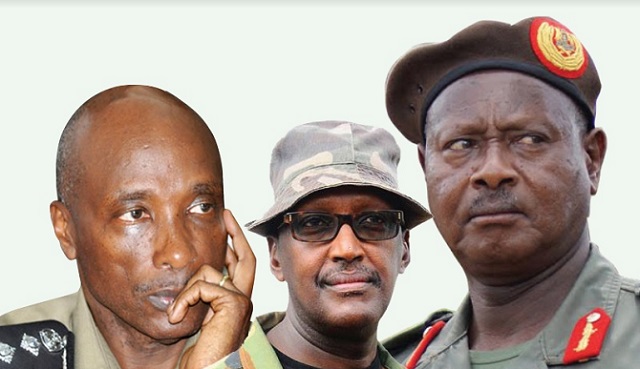
How the war between Kayihura and CMI crashed Boda Boda 2010
Kampala, Uganda | HAGGAI MATSIKO | The circumstances surrounding the arrest of Abdalla Kitatta, the self-proclaimed patron of Boda Boda 2010, has become a talking point in security circles about how far the military is willing to go to dismantle the power structure of Police Chief, General Kale Kayihura.
Kitatta, who has faced military court and was remanded together with 12 others over charges of unlawful possession of arms, was arrested by the Chieftaincy of Military Intelligence (CMI), an intelligence outfit of the military that now finds itself at the apex of Uganda’s ever-changing security infrastructure.
Insiders say Kitatta’s arrest followed CMI’s interrogation of his brother, Huzair Kiwalabye, who was picked up in a Jan.19 sting as part of the investigations into the murder of Francis Ekalungar, the former accountant of Case Clinic.
Insiders say CMI was able to locate Kitatta’s whereabouts after getting his brother to call him. Once he caught wind of the impending trouble, sources say, Kitatta made several frantic calls. He called the Inspector General of Police (IGP) Kayihura, seeking protection. In turn, the IGP called State House and the CMI boss. At State House, the switchboard handler didn’t offer much.
At CMI, Col. Abel Kandiho, who heads the outfit, was not available and instead one of his handlers told Kayihura that Kitatta’s matter followed orders from above.
Until recently, Kitatta, who had in a matter of years risen from a boda boda operative to the highest echelons of power with direct access to both President Museveni and the police chief, was untouchable.
He had procured this power and access by controlling and organizing the association of boda boda riders and owners into a vigilante arm of the police.
Kitatta and his group would scratch the police chief’s back by using his group to quell opposition demonstrations, control some gangs and in turn, the police chief would turn a blind eye to their activities, insiders who are critical of that relationship claim. Kayihura, however, defended Kitatta as a resource who helped police in dealing with crime. Now in the last minutes of Kitatta’s arrest, all this appeared useless. The man who bragged about direct and unfettered access to State House, was being hunted like a rat.
Finally, when it emerged that he had been arrested, all hell broke loose. Mobs in Kampala broke into the offices of Boda Boda 2010, burnt down their furniture, documents, and even beat up leaders of the association.
The mobs doing all this were also carrying placards of Museveni whom they hailed as their liberator from the group. The police was impotent and could not stop the carnage. Some of leaders of the association have gone into hiding, fearing for their life.
Yet only a while ago, the group’s leader, who appeared to have power over life and death, was a regular at State House.
To understand the fate of Boda Boda 2010, one has to appreciate the changing power dynamics in Uganda’s security services, which are closely tied to politics. Their fate is closely tied to the fate of Gen. Kayihura. And by extension, some claim, the deteriorating relations between Uganda and Rwanda.
Over the last decade, Kayihura has accumulated a lot of power. He has done this by turning the police into a political arm of the ruling National Resistance Movement (NRM).
In using the police to fortify Museveni in power, Kayihura has been able to successfully divert a significant amount of budgetary resources to the force, thereby turning it from a sidelined and weak organization into the most visible institution in Uganda’s power politics. When Kayihura joined Police in 2005, the police budget was under Shs70 billion, it has since skyrocketed to over Shs400 billion.
Now armed with a large array of armored vehicles and other anti-riot gear, the Uganda Police Force (UPF) has been an intimidating presence. This made Kayihura a very powerful man but equally bought him very many enemies inside and outside the system.
 The Independent Uganda: You get the Truth we Pay the Price
The Independent Uganda: You get the Truth we Pay the Price



